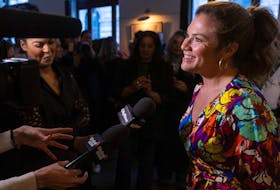I was ready to be enthralled by Netflix’s (arguably) flagship show The Crown, which just launched its fourth season, but I wasn’t expecting to be completely blown away by the streaming giant’s cerebral and highly bingeable mini-series The Queen’s Gambit, which might be one of my favourite shows of the year.

Based on the novel of the same name, The Queen’s Gambit focuses on Beth Harmon (Anya Taylor-Joy), a young orphan and chess prodigy who rises through the ranks of the cutthroat world of the competitive chess scene during the cold war.
It’s not exactly the most enticing premise on its surface, but The Queen’s Gambit succeeds as a compelling, smart, sexy mini-series that is probably my favourite surprise of the year other than maybe Ted Lasso.
The series begins with Harmon’s childhood, growing up in a strict, Christian orphanage where she develops a dependency on tranquillizers given to pacify children.
Seeking an outlet, she discovers the game of chess via the facility’s janitor and a life-long love of the game is established.
She discovers if she saves her tranquillizer pills until night, perhaps several at a time, she can re-create a chessboard in her mind — a visually stunning and somewhat imposing effect.
Thus begins a lifelong struggle with addiction in tandem with her exploding chess. How The Queen’s Gambit handles addiction in such visceral and subtle ways is part of the show’s genius.
She needs the drugs — or the alcohol -— to enter a trance-like state to perform. But it’s not just about her addiction, the show also highlights the incredible strength and perseverance of the main character and the positive relationships she develops with people who support and care about her.
I found myself rooting for Harmon at every step, cheering on this brilliant, troubled young woman who demolishes the male-dominated competition around her. It’s so satisfying.

Blunted sword
The Crown wastes no time getting back into the melodrama of the royal family as they grapple with relationship problems, rising civil unrest and a new administration seeking to fundamentally change British life.
There are some new players this time around, namely (future princess) Diana (played by Emma Corrin) and newly-minted prime minister Margaret Thatcher (Gillian Anderson).
The fourth season picks up with a rising Irish Republican Army, which, in a dramatic scene, assassinates one of the family’s core members, sending shockwaves throughout the family.
There’s the predictable pull of family versus tradition versus love versus duty conflict at play once again. However, it’s not as nuanced or subtle as seasons past. This time around the characters, which seem more like fictionalized versions of their real-life counterparts than ever, are exclaiming their problems practically at the top of their lungs. "You’re my father, why don’t you love me?!" etc.
Things seem dumbed down, lacking an intellectual sharpness that made it compelling in earlier seasons.

The best part so far (no, I haven’t finished the season yet), is the addition of Anderson as Thatcher. Her gruff, strained performance is a wonderful foil to the Queen (Olivia Colman).
An astonishing moment takes place early on in Buckingham Palace, when Thatcher first meets the monarch, asking to form the next government as per tradition.
Thatcher, a woman, says she won’t have women in her cabinet because they don’t make good leaders. "Too emotional," she says to her monarch, the queen. My mouth dropped a little.
I’m looking forward to continuing the season: It’s still beautifully shot, scored, produced, and performed, but I’m just missing some of that nuance, the bite that made the earlier seasons so provocative and interesting.
Huh-tsar!
And, since I love a theme and the rule of threes, I’ll also mention The Great, a series now available on Amazon Prime Video.
-
The Great is a dark comedy about the rise of Russia’s Catherine The Great (played by Elle Fanning) and her coup d’état over her brutal husband Peter III (Nicholas Hoult).
It’s told as a "sometimes true" tale of the monarch’s incredible rise to the throne, as Catherine plots a new, progressive Russia.
It’s funny at times, but fair warning: This is a very dark comedy. The abuse and humiliation Catherine (and the rest of the Russian court) is put through by the vile despot is cringey and sometimes purely unsettling.
Unfortunately, The Great does that thing where everyone speaks in a British accent despite being set in, well, not England.
But the performances by Fanning and Hoult are worth the effort, even if it takes an episode or two to get invested.
Look, what I really want is for Amazon or Netflix or one of the big streaming giants to produce a high-budget, well-cast and respectful series in the final years of the Romanov dynasty. A fascinating part of history that’s tragic and full of intrigue. That’s a story that’s begging for a similar treatment to The Crown.








